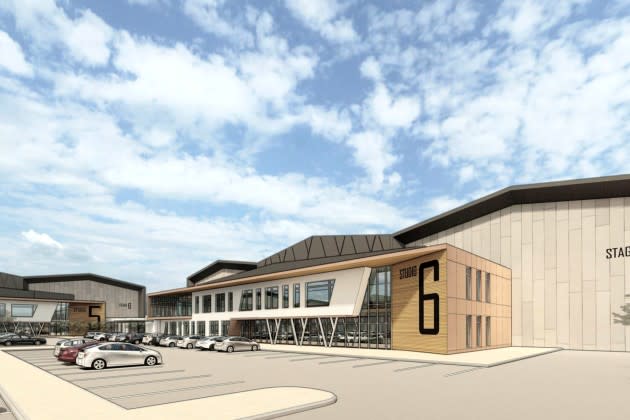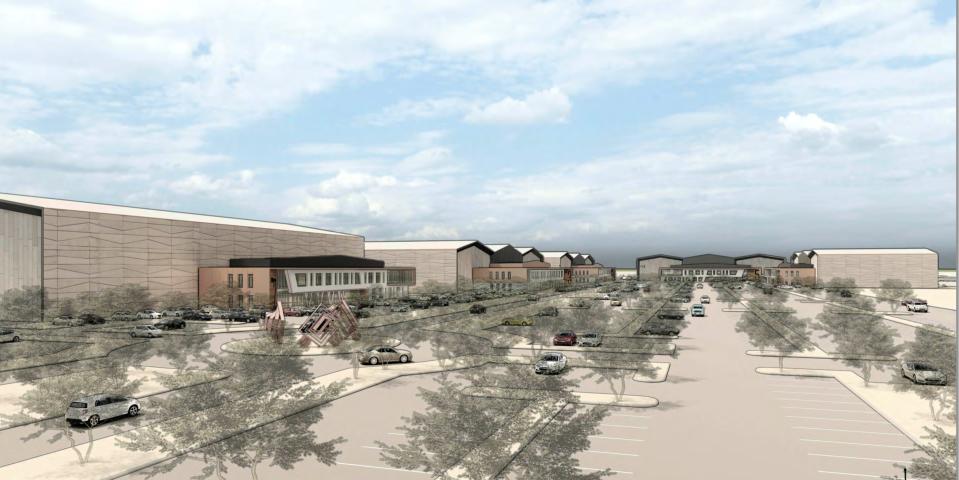Arizona Film Studios to Break Ground Following Tax Incentive (EXCLUSIVE)
- Oops!Something went wrong.Please try again later.

Two Arizona studio projects are preparing to break ground next year, now that the state has approved a $125 million incentive for film and TV production.
Acacia Filmed Entertainment unveiled its plans Monday to build 14 soundstages on a 70-acre site in the Scottsdale area. The other project, Desert Studios Complex, is slated to be built in Buckeye, in the Southwest Valley.
More from Variety
Arizona Governor Allows $125 Million Film Tax Credit to Become Law
Pedro Gomez, Longtime Baseball Writer and ESPN 'SportsCenter' Reporter, Dies at 58
Arizona Closes Movie Theaters, Bars, Nightclubs Due to Surge in COVID-19 Cases
Both projects were intimately involved in designing and lobbying for the state’s new tax credit, which is targeted to incentivize construction of new soundstage facilities.
“We basically helped craft this bill so we could help protect the ability to finance the studio,” said Matthew George, president of Acacia Filmed Entertainment. “It’s a little different than other rebates. This is centered around the ability to build those studios.”
The new credit will launch in 2023 with a cap of $75 million, ramping up to $125 million in 2025. In order to qualify, productions must either film on a soundstage of at least 10,000 square feet, or — if the production relies on location shoots — do all post-production at a “qualified production facility” in the state.
But the state has relatively little in the way of filming infrastructure.
“This bill is designed to attract people to build those facilities,” said Randy Murray, a board member of the Arizona Film and Digital Media Coalition.
Acacia plans to break ground next year, with construction expected to take about 18 months. The project will be built in phases, with the first phase including seven soundstages. A subsequent phase will add more soundstages, plus post-production facilities. The project is expected to cost at least $200 million, George said, and will be developed in partnership with the Tunica-Biloxi Tribe of Louisiana.
George is also president of Castle Rock Entertainment, the company founded and run by Rob Reiner.

He said that once the project is open for business, it will be an attractive place to film — only a 70-minute flight from Los Angeles, and with the amenities of Scottsdale nearby.
“Crew will move here to make movies,” he predicted. “It’s a huge win for Arizona.”
The Desert Studios Complex expects to break ground in the first quarter of 2023, said Nick Simonetta, the project’s lobbyist. The project will cost “multiple hundreds of millions of dollars,” he said. The first phase will include 16 soundstages, with the potential to expand to as many as 64 soundstages in later phases. The project is also expected to include post-production facilities.
The Arizona tax incentive will offer a refundable credit worth 15-20% of a project’s costs, depending on the size of the investment. It also includes a 2.5% bonus for projects that either shoot at a “qualified production facility” or do all pre- and post-production at such a facility. An additional 2.5% bonus applies to projects that sign a long-term lease with such a facility.
The statute defines a “qualified” facility as one that is built for the film industry, meets industry standards and has at least 10,000 square feet.
Now that the credit has been approved, it’s possible that additional facilities may also seek to compete for filming business.
Murray operates First Studio — a combined office building, art gallery and production space — built in a former TV studio in downtown Phoenix. He said it would take some work to get in a position to compete for film shoots.
“We’re not geared up,” Murray said. “We’ve been left behind by the industry. It’s going to take time to gear up to be at the level we need to be at.”
One question is how restrictive the rules will be for post-production, given that much post-production work can be done remotely.
The Arizona Commerce Authority, a public-private partnership that is tasked with attracting businesses to the state, will be responsible for writing the regulations.
“We’re in the middle of writing the rules with the ACA,” George said. “We don’t want them to be too restrictive, but we also want to protect the concept of bringing studios to the state of Arizona.”
Best of Variety
Sign up for Variety’s Newsletter. For the latest news, follow us on Facebook, Twitter, and Instagram.

